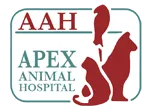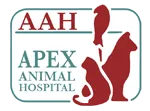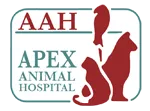Treatment for Cataracts in Pets
Cataracts are a clouding of the lens of the eye, a common condition that can affect pets of all ages. This clouding can significantly impair vision, leading to difficulties navigating familiar environments, hesitance to play, and even bumping into objects. If you notice any vision changes in your pet, it's crucial to seek professional veterinary care from a veterinarian near you. Early diagnosis and treatment of cataracts can help restore your pet's vision and improve their quality of life.
Signs and Symptoms of Cataracts in Pets
Cataracts typically develop slowly over time, and the signs might not be immediately noticeable. Here are some common signs to watch for:
• Cloudy appearance in the eye: This is the most obvious sign of cataracts. The normally clear lens may appear cloudy, white, or opaque.
• Vision problems: Pets with cataracts may bump into objects, hesitate going up or down stairs, or seem less interested in playing fetch.
• Changes in pupil size: The pupil, the dark circle in the center of the eye, may appear abnormally large or small.
• Squinting: Squinting can indicate your pet is straining to see.
If you observe any of these signs in your pet, schedule an appointment with a veterinarian near you for a comprehensive eye exam.
Treatment Options for Cataracts in Pets
Cataract surgery is the only effective treatment for restoring vision in pets with cataracts. Here's an overview of the cataract surgery process:
• Pre-operative assessment: A thorough pre-operative assessment is crucial to ensure your pet is healthy enough for surgery. This may include blood tests, an electrocardiogram (ECG), and other diagnostic tests.
• Surgical procedure: Cataract surgery is a delicate procedure performed by a veterinary ophthalmologist, a veterinarian specializing in eye care. During surgery, the clouded lens is removed and replaced with an artificial lens.
• Post-operative care: After surgery, your pet will need to wear an Elizabethan collar (cone) to prevent them from rubbing or scratching their eye. They will also need medication to prevent infection and inflammation.
Committed to Your Pet's Eye Health
At Apex Animal Hospital in Langley, BC, we understand the importance of vision for your pet's overall well-being. Our team of experienced veterinarians works closely with veterinary ophthalmologists to ensure your pet receives the best possible care for cataracts and other eye conditions.
If you're concerned about your pet's vision or suspect they may have cataracts, don't hesitate to contact us. Schedule an appointment with a veterinarian near you at Apex Animal Hospital by calling (604) 514-1444. Early diagnosis and treatment can significantly improve your pet's quality of life and allow them to see the world clearly again.



